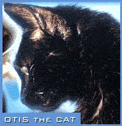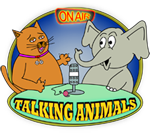Kate MacFall and Katherine McGill—longtime wildlife experts joining me for a discussion devoted to the Florida Fish and Wildlife Conservation Commission (FWC), specifically, the FWC’s current effort to evaluate existing rules for wildlife trapping—address what for many may be the surprising prevalence of trapping in Florida.  McGill and MacFall go on to speak to the extent to which Florida trapping divides along
McGill and MacFall go on to speak to the extent to which Florida trapping divides along regional lines, while noting some of the reasons for trapping—legitimate reasons for trapping. As part of this exchange, McGill mentions that, in sharp contrast to some of these commercial enterprises that trap and haul away wildlife, she co-founded the 411 Wildlife Organization, a new nationwide free public assistance hotline for mitigating wildlife conflicts with assistance from industry experts. That hotline number is 877-WILD-411. I inquire if there’s a certain cycle or timetable–constitutionally or otherwise–by which the FWC periodically reassesses trapping regulations? Especially given that it’s been 50+ years since the trapping rules last changed. There is not a proscribed period by which the FWC examines trapping regulations—indeed, this current reevaluation session has already extended long enough that MacFall, McGill, and I did a radio show on the early stages of this very process nearly three years ago. We explored the official role that MacFall and McGill have stepped into, becoming members of the FWC trap rules reform Technical Advisory Group (TAG), representing the humane wildlife control industry. They touched on
regional lines, while noting some of the reasons for trapping—legitimate reasons for trapping. As part of this exchange, McGill mentions that, in sharp contrast to some of these commercial enterprises that trap and haul away wildlife, she co-founded the 411 Wildlife Organization, a new nationwide free public assistance hotline for mitigating wildlife conflicts with assistance from industry experts. That hotline number is 877-WILD-411. I inquire if there’s a certain cycle or timetable–constitutionally or otherwise–by which the FWC periodically reassesses trapping regulations? Especially given that it’s been 50+ years since the trapping rules last changed. There is not a proscribed period by which the FWC examines trapping regulations—indeed, this current reevaluation session has already extended long enough that MacFall, McGill, and I did a radio show on the early stages of this very process nearly three years ago. We explored the official role that MacFall and McGill have stepped into, becoming members of the FWC trap rules reform Technical Advisory Group (TAG), representing the humane wildlife control industry. They touched on  important proposals they made during the TAG procedure, including the need for a so-called “Public Take Permit,” and the rationale behind it. This proposal elicited favorable response from the TAG, but being embraced initially didn’t hold up over time, as “senior staff opted not to pursue it.” McGill and MacFall
important proposals they made during the TAG procedure, including the need for a so-called “Public Take Permit,” and the rationale behind it. This proposal elicited favorable response from the TAG, but being embraced initially didn’t hold up over time, as “senior staff opted not to pursue it.” McGill and MacFall described measures by which interested citizens learn more about possible changes in trapping rules –-and weigh in. These include a Webinar/Zoom hosted by Alicia from the Animal Legal Defense Fund, and Kate MacFall, the Humane World for Animals Director, on April 30 at 6 pm ET. Here’s the link: https://us06web.zoom.us/j/81225275599?pwd=3sKnXgpVnIWWZqqwK6dakiQ3xfkBHB.1
described measures by which interested citizens learn more about possible changes in trapping rules –-and weigh in. These include a Webinar/Zoom hosted by Alicia from the Animal Legal Defense Fund, and Kate MacFall, the Humane World for Animals Director, on April 30 at 6 pm ET. Here’s the link: https://us06web.zoom.us/j/81225275599?pwd=3sKnXgpVnIWWZqqwK6dakiQ3xfkBHB.1
The FWC will offer virtual public meetings/webinars/Zooms of their own, to review proposed Trapping Rules changes: Tuesday, May 6th from noon to 3pm. Thursday, May 8th from 6pm to 9pm, Saturday, May 10th from 9am to noon. Search “FWC Trapping Rules 2025” for links to each ZOOM mtg.
 ALSO: I spoke with Bella Perkins, Development Specialist at Great Explorations Children’s Museum, the longstanding, highly-regarded children’s museum located in Saint Petersburg, Florida. Perkins provides an overview of Great Explorations, a non-profit museum and school, which has served children (and their parents) in and around the Tampa Bay Area for the better part of four decades. She goes on to explain that on April 30, in an alliance with Paws for Friendship, the Museum will be celebrating National Therapy Animal Day. This involves assembling a small group of therapy and service animals at the Museum, Perkins says, and explaining to the families on hand the valuable work these animals do to help an array of humans. Perkins adds that their National Therapy Animal Day is slated to begin at 10:30am and run until 4pm, noting that arriving earlier may be better from the standpoint of visiting with the animals. No sign-up or registration in advance is required, and there’s no additional cost beyond museum admission. (https://greatex.org/event/national-therapy-animal-day/, https://www.instagram.com/great_explorations/, https://www.facebook.com/GreatExKids)
ALSO: I spoke with Bella Perkins, Development Specialist at Great Explorations Children’s Museum, the longstanding, highly-regarded children’s museum located in Saint Petersburg, Florida. Perkins provides an overview of Great Explorations, a non-profit museum and school, which has served children (and their parents) in and around the Tampa Bay Area for the better part of four decades. She goes on to explain that on April 30, in an alliance with Paws for Friendship, the Museum will be celebrating National Therapy Animal Day. This involves assembling a small group of therapy and service animals at the Museum, Perkins says, and explaining to the families on hand the valuable work these animals do to help an array of humans. Perkins adds that their National Therapy Animal Day is slated to begin at 10:30am and run until 4pm, noting that arriving earlier may be better from the standpoint of visiting with the animals. No sign-up or registration in advance is required, and there’s no additional cost beyond museum admission. (https://greatex.org/event/national-therapy-animal-day/, https://www.instagram.com/great_explorations/, https://www.facebook.com/GreatExKids)
COMEDY CORNER: John Mulaney’s “There’s A Horse In The Hospital” (https://www.johnmulaney.com/)
MUSIC: Rebekah Pulley’s “Talking Animals Theme,” instrumentals
NAME THAT ANIMAL TUNE: We didn’t play “Name That Animal Tune” today.
AUDIO ARCHIVE:
Listen Online Now:



